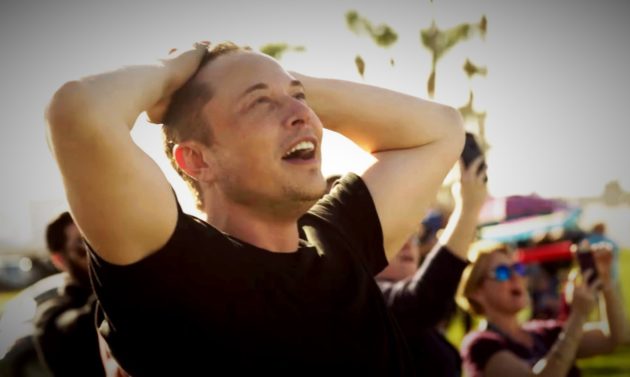
Science fiction blends with fact in tonight’s double dose of Mars from National Geographic’s TV channel.
Truth to tell, there’s more fact than fiction: The first show in the double feature is “Mars: Inside SpaceX,” which wraps a tale of past and future space exploration around an inside look at SpaceX’s first Falcon Heavy launch in February.
Then there’s the season premiere of “Mars,” the semi-scripted, semi-documentary series that’s serving up a second set of six episodes.
Both shows are eye-openers.
For “Inside SpaceX,” National Geographic had exclusive access to the rocket company’s facilities for February’s headline-grabbing launch. We see Musk showing his kids around the access tower at Kennedy Space Center’s historic Launch Complex 39A and weighing go/no-go decisions inside the mission control room.
The back-and-forth in the control room clears up the mystery behind the countdown holds that popped up in advance of the Falcon Heavy’s liftoff.
“You guys, I’m gonna give us a little more time to decide,” launch director Ricky Lim says at one point.
“Yeah, hold the clock for now,” Musk replies.
The key moment comes when Musk runs outside to watch the Falcon Heavy’s ascent. “That’s unreal!” he exults, with a smile of pure joy breaking out on his face.
“Mars: Inside SpaceX” also tells the story of SpaceX’s sometimes-shaky beginnings, and provides historical context for Musk’s overarching aim of turning humanity into a multiplanetary species.
“It’s one of those things that’s a reason to live,” Musk explains.
The first episode in the second season of “Mars” turns the focus to the year 2042, five years after the conclusion of the first season. Life on Mars gets complicated for the Red Planet’s first residents and their not-for-profit research organization when a for-profit mining operation arrives and starts drilling.
In addition to dealing with the basic challenges of life on a new world — such as pregnancy and birth, illness and death — the researchers and the miners have to figure out how to resolve the tension between exploration and exploitation.
Scenes in the fictional narrative are intercut with on-camera interviews with present-day “Big Thinkers” (including Musk) and documentary footage that delves into contemporary parallels to the problems of 2042.
For example, the tug of war over Martian territory sets the tone for reflecting on a similar tug of war over Arctic resources.
“There’s a constant push-pull between science and industry, and as a result, emotions run high,” Dee Johnson, showrunner for the second season, said in a news release. “Although conflicting, their agendas are not mutually exclusive; with the advancement of science and exploration also comes industry and money-making.”
Will terrestrial squabbles over resources provide lessons for future Martians? Or in a weird way, could the fictional frictions of 2042 teach us a thing or two about solving 2018’s troubles? As they say in Hollywood, and might well say someday in Hellas Planitia, stay tuned.
“Mars: Inside SpaceX” and the second-season premiere of the “Mars” hybrid series both make their debut on the National Geographic Channel tonight. Check local listings for times. The first season of “Mars” is freely available via National Geographic’s website.



